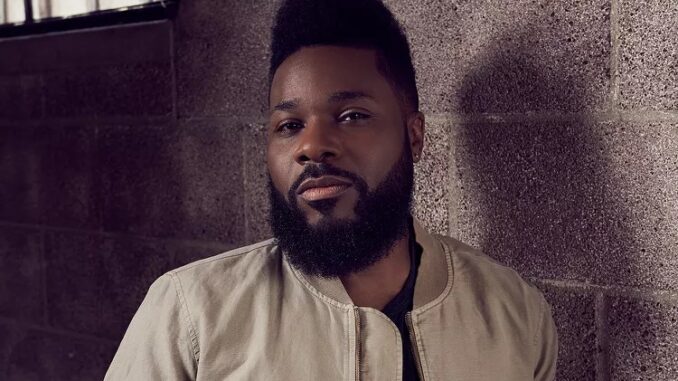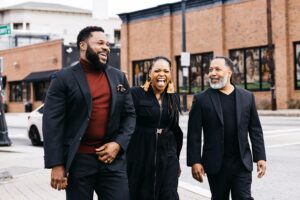
“We wanted to have a space where we can really explore, discuss, and acknowledge all of those different aspects,” Warner tells of ‘Not All Hood’, which will cover topics like love and mental health from the Black community’s perspective
Malcolm-Jamal Warner is ready to show his vulnerable side.
The actor, 53, is launching a new podcast entitled Not All Hood on June 10 that will explore the vast and diverse experiences of the Black community. Together, with cohosts Weusi Baraka and Candace Kelley, the trio will discuss topics including Black love and representation in the media.
“When we talk about the Black community, we tend to speak of it as a monolith when the reality is there are so many different facets of the Black community, and we wanted to have a space where we can really explore, discuss, and acknowledge all of those different aspects,” Warner tells.
While Warner has been relatively transparent about his life and career — including his pride in playing Theodore Huxtable on The Cosby Show, his roles on The Resident, Accused, and Suits, among others and being a father to a six-year-old daughter — he says Not All Hood offers him a space where he can be his “most vulnerable.”
“It’s been an interesting experience for me, because it’s a place where I feel safe enough to be able to be as vulnerable as I allow myself to be,” he adds.
Mental health remains challenging to discuss in many cultures, but for the Black community, mental health has long been an an especially taboo subject. In one upcoming podcast episode, Warner and his cohosts delve into this issue.
“Talking to therapists and psychologists has been such a no-no for such a long time,” he says. “There is an aspect of just living in this country and what we have experienced historically in terms of navigating and driving through a system where so much of the deck has been stacked against us.”

Not All Hood will also unpack what Warner calls the problematic nature of twerking, which is derived from more traditional types of African dance. In more recent years, twerking has become viewed as more sexually suggestive.
“When you look at that dance from an African cultural perspective, it doesn’t land the same. Of course they don’t call it twerking in Africa, but when you see kids doing that dance, you can see the cultural heritage in the movement and in the culture,” he says. “By the time it comes here to the States, I think we have an issue with sexualizing really young girls. So when they’re doing those same movements, there is a sexual connotation that we don’t see when you are looking at kids on the homeland doing it.”
It’s Warner’s ultimate hope that the podcast will help “combat” the Black narrative often covered by the media.
“So many of our Black images and so much of our Black music shows one side of our Black culture,” he adds. “We want to make sure that we can balance that out with the many other aspects of Black culture out there.”